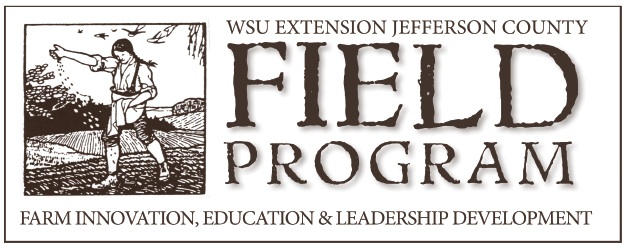Plant starts and seed donations are a great way to get more fresh veggies into the hands of the folks who need them. This simultaneously empowers people and provides an opportunity for giving back – it is the gift that keeps giving!
In Jefferson County, Plant-A-Row has been a significant part of the gleaning program. Without ever naming the campaign ‘Plant-A-Row’ (which is the official name of a national initiative started by the Garden Writers Association), Jefferson County Gleaning handed out hundreds of seed packets and hundreds of plant starts to the community along with gardening tips (information packets and through conversation). Because of this, the food banks are seeing more home grown produce being donated to the food banks than they had in years past.
Both seed packets and plant starts can be acquired in various ways. Many of the farms in this area sell plant starts to home gardeners and will often have extras or plant starts past their prime. These starts can still be planted and grown into successful, productive plants. Take note where plant starts are grown and ask those farmers what they do with their extras. Many farms raise seedlings as transplants for their own farm production and will have over seeded, leaving them with extra plant starts that can be distributed to gardeners. When approaching farms about crop gleaning, the request for extra plant starts can be mentioned. It is often something that a farmer would not think about donating if not asked.
Garden Stores
.JPG)
Nurseries, garden centers and grocery stores are other places that might have plant starts for donation. Timing is important in asking for these donations, so continuing to ask for donations is critical! Sometimes giving away the plastic trays and transplant cells can be a hang up for plant start donors. This can be overcome by transferring each plant start into another container (one made from newspaper would even work great) and returning the plastic to the farms.
Seeds for Food Banks
You can also acquire seeds directly from seed companies. Many seed companies will donate their seed packets from the previous season. For the majority of plants, seed viability is longer than one year so planting year old seeds is not a problem. Some seed companies have online applications for free seeds while others need only an informal request. Some require shipping payments while others are completely free, shipping included. Companies that do give away last year’s seeds include: Territorial Seed Company, Botanical Interests, High Mowing Seeds, and Hudson Valley Seeds. Small local seed sources will often give away seeds to local efforts. For many of these donations, having a non-profit status is helpful in getting approved for free seeds.
The local seed suppliers (garden centers, Walmart, supermarkets, nurseries, etc.) are also great sources for seed donations. Ask staff at these establishments for last year’s seeds to support a local cause; this will often result in generous seed donations. Seed soliciting is most effective from late fall into winter. Many seed companies and stores will have already given away their seeds by spring.
When handing out seed packets to new gardeners, be mindful of handing out seed varieties that will not grow in the region. This can discourage anyone from wanting to grow food for themselves or their community! In that same vein, any information that can be given to gardeners through written material, classes, or conversation will most likely create a more successful garden which is motivating in itself to keep on growing!

.png)
